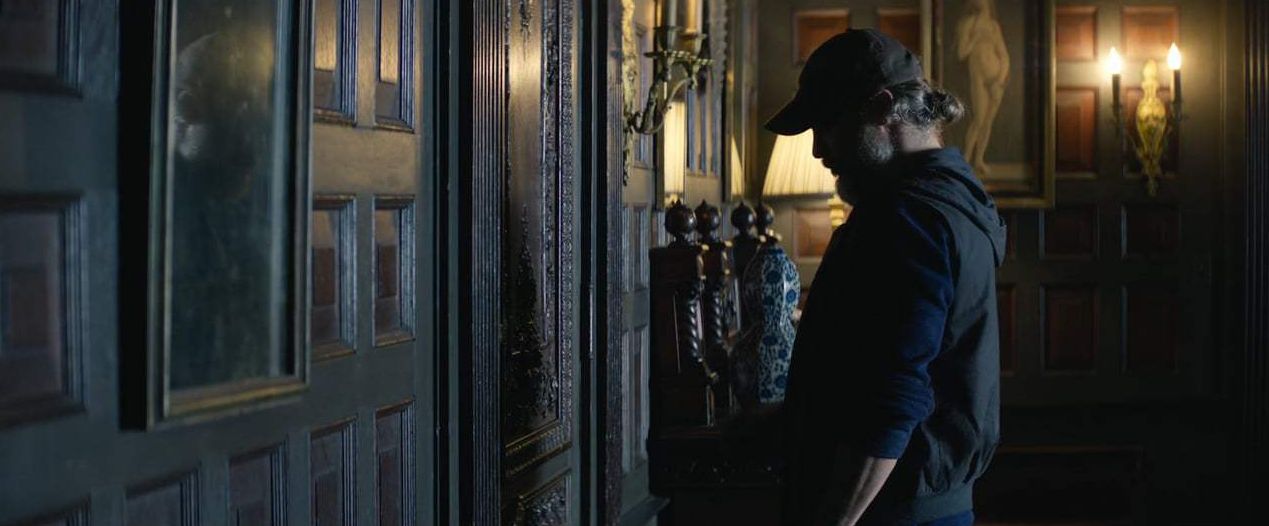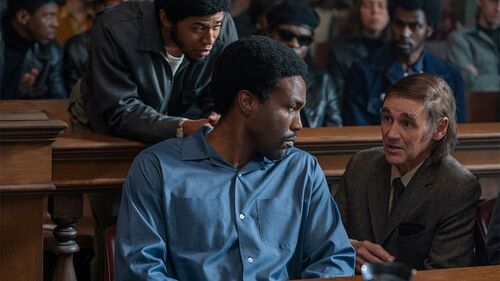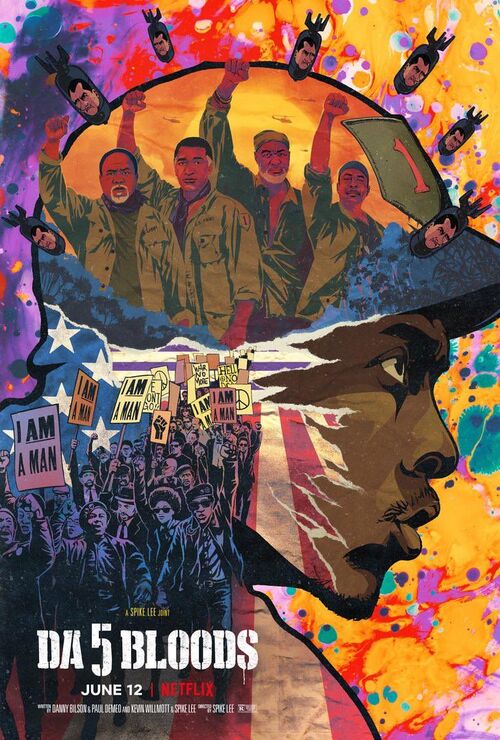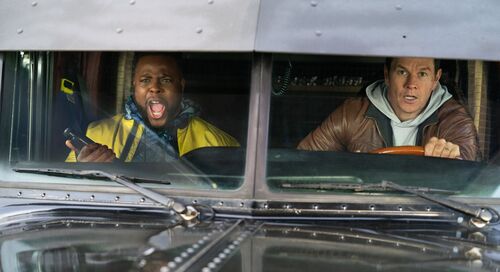
'You Were Never Really Here' Review
 Just under 90 minutes. That’s all the brilliant Lynne Ramsay needs to construct here frenzied cinematic figurine in ‘You Were Never Really Here’, which harnesses a mood evoking Nicolas Winding Refn's 'Drive' whilst strongly channeling Scorsese’s 'Taxi Driver'. At its core lies a painful longing for innocence in desperately hellish times examined on the canvas of a hitman thriller.
Just under 90 minutes. That’s all the brilliant Lynne Ramsay needs to construct here frenzied cinematic figurine in ‘You Were Never Really Here’, which harnesses a mood evoking Nicolas Winding Refn's 'Drive' whilst strongly channeling Scorsese’s 'Taxi Driver'. At its core lies a painful longing for innocence in desperately hellish times examined on the canvas of a hitman thriller.
‘You Were Never Really Here’ has recognisable plot beats; a principled protagonist, shady politicians, a criminal underworld and the classic job gone wrong. These externalities, Ramsey has little concern for. She is more interested in the vortex of trauma and pain swirling around in our lead, Joaquin Phoenix’s head. Behind his eyes lie searing torment rooted in his childhood but sadistically manicured by a couple other carefully revealed experiences.
Phoenix plays Joe, an ex-FBI agent and a veteran of America’s incursions into the gulf. He now lives on the other side of the law working as a contract killer based in New York. His specialty; marks in the sex trafficking world. When we first meet him, he has just completed a mission and is in the middle of one of his self-harm therapy sessions. A plastic bag over the face seems to be his go to – an offcut of his turbulent and violent childhood.
Phoenix has packed on the pounds for this role. With his grizzled beard and long mane, his Joe is a hunk of a man yet still a bundle of subtle physicality. The only other man I could see excelling in this role is, of course, Tom Hardy. Like the reticent protagonist in 'Driver', he is a man of few words, except when he retreats into domesticity with his aged mother, played tenderly by Judith Roberts, who shares in some past trauma with her son. Their banter, grumbles and 'Psycho' jokes lighten up the mood, even if for a moment.
Joe’s demented calling soon puts him in contact with a high-ranking New York senator (Alex Manette). His adolescent daughter, Nina (Ekaterina Samsonov), has been kidnapped and put to work in a Manhattan brothel. Joe is tasked with finding her. He is to do so with some degree of brutality. No finesse. Our man’s default weapon is a ball pen hammer and he has no qualms getting violently messy. Needless to say, it is at this point the plot gets turned on its head as the extent of depravity and corruption take hold.
The taciturn Nina begins to embody much more than the little girl in distress as the plot disentangles. Like Joe, she’s been cursed with an early initiation into the darkest corners of this world. But maybe she can be saved, at least in Joe’s eyes. With each hammer wound he inflicts into a fiend’s head; with each face he batters with unrelenting ferocity, maybe he is a step closer to preserving his soul.
There is an edgy paradox underpinning his character. This slowly becomes apparent as we realise he really hasn’t grown past the child we see in flashbacks hiding in the closet as his father brutalises his mother. Despite being a conduit of extreme violence, he still seems shocked by it. Unlike your stereotypical hitman in a neo-noir piece, he is far from numb. He only crawled into the underworld to hold firm to what humanity has left and Nina is primed to provide him with the awakening he has ignored for so long.
Ramsey spices up the film with similar idiosyncrasies that border on the surreal. Consider the remarkable sequence where an emotionally wounded Joe, seemingly on the warpath, holds hands with a dying man he had just shot and they start singing this ballad about emptiness playing on a radio. There is also an ominous sequence early on where Joe emerges like the grim reaper from a back entrance of a hotel and we notice some dead pigeons just littered in the corner of the frame. Why? I have no idea.
Ramsey also has a distinct way of handling flood of violence that comes our way. Joe’s brothel invasion is ripe for an 'Oldboy' style hallway sequence. But our director opts to present our protagonist’s melees in disorganized fragments, viewed through multiple CCTV cameras scored in part by elevator-type music. She rarely dwells on bloody aftermath’s either, with remnants seemingly out of focus or in strained lighting. As precise as Ramsay’s brooding direction is or the tactile cinematography, which creates an effective confluence of the gritty and fantastic or, of course, Phoenix’s brilliant off-kilter personification of the word “damaged,” I was also very impressed this film came in under 90 minutes.
The absence of chaff elevates this to a five-star film. The ability to put together a taut piece of cinema whilst remaining staggeringly incisive is a feat not to be taken for granted. It's why I hold a film like 'A History of Violence' in high regard. 'You Were Never Really Here' never stops for a breather. It doesn't waste a scene. You could argue more than necessary happens off screen. But its still leaves the desired effect because we are firmly rooted in Joe's head. Furthermore, the exquisite pacing meant there was still so much time for the scenes to breath to the beat of Ramsey's tortured rhythm.
There's no conventional avenue for empathy in ‘You Were Never Really Here’ so Ramsey all but ambushes us with the despair and bleak sensibilities. She wanted to leave audiences in an even tighter darker hole given the double ending. Perhaps providing choice is her way of showing that Joe had finally found some empathy.
-


